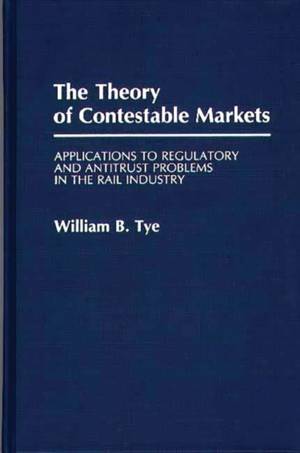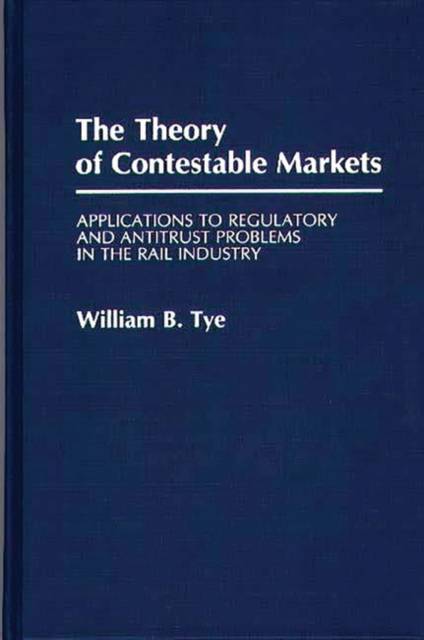
- Afhalen na 1 uur in een winkel met voorraad
- Gratis thuislevering in België vanaf € 30
- Ruim aanbod met 7 miljoen producten
- Afhalen na 1 uur in een winkel met voorraad
- Gratis thuislevering in België vanaf € 30
- Ruim aanbod met 7 miljoen producten
The Theory of Contestable Markets
Applications to Regulatory and Antitrust Problems in the Rail Industry
W B Tye, William B TyeOmschrijving
This book provides a comprehensive analysis of the application of the new theory of contestable markets to the problem of the transition to deregulation in regulated industries. It offers an extensive review of both the theory and practice of contestable markets, as well as guidelines for the practical application of the theory to regulated industries and antitrust, with special consideration given to the problems of the rail industry. As applied in this industry, the theory promised to help balance the conflicting goals of regulatory transition and to define standards for revenue adequacy, cooperation among competitors, maximum reasonable rates, and antitrust immunity for mergers.
Unlike other, chiefly theoretical, treatments of the subject, the author has provided a study of the theory of contestable markets as well as its past and potential applications. His introduction discusses such topics as the relevant theory of perfect contestability, implications for economic welfare, and recent applications of the theory. Chapter 2 deals with vertical mergers into contestable markets, while chapter 3 concerns itself largely with the transition to deregulation in regulated industries. Unlike other theoretical studies, however, the work also addresses the theory in practice. Using the insights gained when the theory was employed in the rail industry, the author draws conclusions regarding a broad range of regulatory and antitrust issues affecting all industries, such as economic analysis of vertical mergers and vertical economic practices.Specificaties
Betrokkenen
- Auteur(s):
- Uitgeverij:
Inhoud
- Aantal bladzijden:
- 160
- Taal:
- Engels
- Reeks:
Eigenschappen
- Productcode (EAN):
- 9780313273377
- Verschijningsdatum:
- 24/07/1990
- Uitvoering:
- Hardcover
- Formaat:
- Genaaid
- Afmetingen:
- 154 mm x 242 mm
- Gewicht:
- 421 g

Alleen bij Standaard Boekhandel
Beoordelingen
We publiceren alleen reviews die voldoen aan de voorwaarden voor reviews. Bekijk onze voorwaarden voor reviews.









